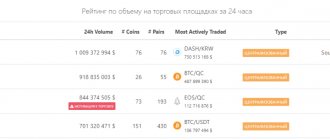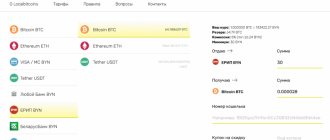Aidar Masatbaev
LLM Chartered Tax Expert
Legal consultant "Chamber
of Professional Legal Consultants"
Member of the NGO "Chamber of Tax Consultants"
In Kazakhstan, regulation of issues related to cryptocurrencies began on June 25, 2022: the Law “On Amendments and Additions to Certain Legislative Acts of the Republic of Kazakhstan on the Regulation of Digital Technologies” was signed.
It was thanks to this regulatory act that Kazakhstan officially introduced regulation of mining, blockchain, cryptocurrency (the term “digital asset” was officially adopted in Kazakhstan) and other institutions, without which the circulation of digital assets and its regulation would be impossible.
Kazakhstan considered it necessary to separate the norms for regulating the processes of mining, issuance and circulation of digital assets and introduce two different approaches:
- General regulation;
- Regulation of the Astana International Financial Center (AIFC).
General regulations
Following the policy trend of the Organization for Economic Co-operation and Development (OECD), Kazakhstan recognizes cryptocurrency (digital asset) as a means of payment on its territory, giving it the status of property. The civil legislation of the republic is supplemented accordingly. At the same time, Kazakhstan’s policy in the field of regulation of digital assets and everything connected with them is characterized by a certain amount of caution.
In particular, having legalized the division of digital assets into two camps: secured and unsecured assets, the Government of Kazakhstan put a direct ban on:
“The release and circulation of unsecured digital assets on the territory of the Republic of Kazakhstan is prohibited, except in cases provided for by the laws of the Republic of Kazakhstan.”
More than 8 months have passed since the adoption of the law, but these cases have not yet been determined.
At the same time, the Government ensured timely regulation of the issuance and circulation of secured digital assets.
Thus, the issuance and circulation of unsecured digital assets is directly prohibited in Kazakhstan. Mining of unsecured digital assets is not prohibited, but the development of extensive mining fields for the extraction of unsecured digital assets (for example, Bitcoin) is prevented by the legislative provision according to which the digital asset belongs to the person who mined such an asset. According to industry legislation, the right to a digital asset is certified by an entry in the blockchain by the person issuing the digital asset on a distributed data platform, in the manner established by the legislation of the Republic of Kazakhstan.
The following situation is also possible, interesting for its legal consequences:
The owner of mining equipment in Kazakhstan does not provide a hashrate service, as a result of which in fact he will become the owner of an unsecured digital asset, but a service of renting and maintaining equipment in proper working condition to a non-resident.
In turn, the non-resident remotely controls this equipment in Kazakhstan. It is he who will extract the unsecured digital asset and declare it his property, entering his name into the blockchain system. This will happen outside the Republic of Kazakhstan.
Uzbekistan
Back in 2022, the President of Uzbekistan Shavkat Mirziyoyev signed a decree providing for the introduction of blockchain in government administration and affecting the regulation of cryptocurrencies.
In the same year, a decree on the regulation and licensing of cryptocurrency exchanges came into force, and in 2022, the National Agency for Project Management under the President of Uzbekistan (NAPM), which is the regulator in the field of crypto-asset circulation in the country, approved additions to the licensing procedure.
According to the adopted regulation, activities in the field of cryptocurrency turnover are subject to mandatory licensing by NAPM.
At the same time, residents of Uzbekistan can only carry out transactions for the sale of cryptocurrencies and tokens through exchanges, and cryptocurrencies themselves are prohibited from being accepted as a means of payment or payment acceptance.
“This, at the same time, is due to the low financial literacy of the population in the new field of crypto-assets,” NAPU representative Askar Zakirov told ForkLog.
There are no prohibitions for non-residents of the country.
At the beginning of 2022, the first licensed cryptocurrency exchange, Uznex, was launched in Uzbekistan. So far it remains the only such platform in the country.
NAPU then announced plans to create a regulatory sandbox and mining pool to consolidate the capacity of domestic and foreign miners at the national level.
The draft document was submitted for public discussion back in January 2020, but it has not yet been approved, NAPU told ForkLog. Accordingly, neither the sandbox nor the mining pool have been launched yet.
During the announcement of the launch of the National Mining Pool, it was reported that miners who join the pool will receive privileges in the form of standard electricity tariffs.
Since 2022, local miners have been required to pay triple tariffs for electricity.
So far, the mining of crypto assets in Uzbekistan is not regulated in any way. Regulation should be spelled out in the draft of a new regulatory legal act, which is currently being prepared by NAPM.
In addition to mining, it will specify the types of platforms, service providers, advertising requirements and other procedures related to activities in the field of cryptocurrency turnover.
NAPU has not yet disclosed what exactly will be in the bill.
“Currently the project is at the stage of coordination with ministries and departments. Then it will be uploaded to the portal for public discussion, where everyone can see it and give their suggestions or comments,” Zakirov said.
Taxation
Income received from the sale of an unsecured digital asset
Taxation of income received from the sale of an unsecured digital asset outside of Kazakhstan for a legal entity - a tax resident of Kazakhstan at the current level of regulation is quite complex. The reason is the lack of provisions in the tax legislation of the republic that would directly contain the term “digital asset”.
However, the increase in value received by this legal entity abroad will be exempt from VAT due to the territorial nature of this tax.
Tax legislation in Kazakhstan will be based on accounting standards. In this regard, the digital asset, by virtue of its recognition as property, will be treated as inventory, according to international accounting standards. The Kazakhstan legal entity will recognize the cost of such inventories in accordance with International Accounting Standard (IAS) Inventories (2015):
9 Inventories should be valued at the lower of cost or net realizable value.
Cost of inventory
10 The cost of inventories shall include all acquisition costs, conversion costs and other costs incurred to maintain the current location and condition of the inventories.
Acquisition costs
11 Costs for the acquisition of inventories include the purchase price, import duties and other taxes (except for those that are subsequently reimbursed to the organization by tax authorities), as well as the costs of transportation, loading and unloading and other costs directly attributable to the acquisition of finished products, materials and services. Trade discounts, rebates and other similar items are deductible in determining acquisition costs.
Profit from the sale of an unsecured digital asset will be determined as the value of its subsequent sale. A legal entity in its accounting policy determines the principles of FIFO or LIFO when determining income from the increase in the value of unsecured digital assets received on foreign cryptocurrency exchanges.
For individuals, income from the sale of a crypto-asset outside the Republic of Kazakhstan is the entire cost of the sale of such a crypto-asset, since the Tax Code does not provide for a separate definition of the increase in the value of a crypto-asset.
Income received from the sale of a secured digital asset
Taxation of income from the sale of secured digital assets abroad will be similar to that described above.
Secured digital assets in Kazakhstan include a digital token and other digital assets that are a digital means of certifying property rights to goods and (or) services issued (provided) by the person who issued the secured digital asset. In this regard, the taxation of income received from the sale of secured digital assets in Kazakhstan, in the sense of corporate income tax and turnover in the sense of VAT, will depend on the asset that is accepted as security for such assets, since in essence, a secured digital asset is only an add-on the asset providing its value (affiliated gold, grain and other material reserves).
Understandable attention
Kazakh miners and traders
to the Astana Hub technopark
, however, the list of priority activities of the technopark does not include either mining of unsecured digital assets or trading of any types of digital assets (cryptocurrencies), therefore the
tax benefits granted to the technopark in this case do not apply to such income applicable.
Regulatory standards of the Astana International Financial Center
Mining and circulation of digital assets are regulated by legislative acts issued by the Center itself.
The fundamentally beneficial differences in regulation for miners and traders are immediately visible, starting with the definition of a “digital asset.”
In accordance with the AIFC Act “Glossary” (yes, it is called that and contains a single general list of definitions used by other AIFC acts, which is very convenient and contributes to the uniformity of understanding of the law), Digital Asset (or Private Electronic Money or Private E-Money) is a digital representation of a price that:
- Traded electronically and functions as (a) a measure of exchange, (b) a unit of account, (c) has (stores) value;
- Can be exchanged for fiat currency and vice versa, but such asset is not issued by a government or jurisdiction;
- Performs these functions only by agreement of the Digital Asset user community and accordingly;
- Must be different from Fiat currency and Electronic money.
The AIFC legislation does not know the division into secured or unsecured digital asset, does not provide for the concept of “mining”, “issuance” and “circulation” of digital assets between AIFC participants and third parties, and therefore does not contain a prohibition, based on the general rules of English law, which is based on permission to carry out activities that are not expressly prohibited by law.
Having determined the comparative liberality of the AIFC regulation of its turnover of digital assets, from a tax point of view it is necessary to take into account the following:
AIFC legislation does not classify Digital Assets as Securities, but classifies them as Investments.
For comparison, let’s give the concept of Security according to the AIFC legislation:
- (a) share;
- (b) a debt instrument (eg bonds);
- (c) warrant;
- (d) certificate;
- (e) structured product.
In accordance with the relevant legislative act of the AIFC, individuals and legal entities until January 1, 2066 are exempt from paying individual and corporate income taxes on income:
- From the increase in value upon the sale of securities that are on the official lists of the stock exchange on the date of sale;
- From the increase in value upon the sale of shares of participants - legal entities registered in accordance with the current law of the AIFC, or shares in the authorized capital of participants - legal entities registered in accordance with the current law of the Center;
- In the form of dividends and remunerations on securities that are on the official lists of the stock exchange on the date of accrual of such dividends or remunerations;
- In the form of dividends on shares of participants - legal entities registered in accordance with the current law of the Center, or on shares in the authorized capital of participants - legal entities registered in accordance with the current law of the AIFC.
Due to the fact that digital assets are not recognized as securities in the AIFC, tax benefits for income received from the sale of a digital asset are not provided for in the relevant AIFC legislation or national legislation.
However, the AIFC does not provide for a separate crypto exchange that could provide a platform for the circulation of such assets.
Kyrgyzstan
By March 2022, regulation of cryptocurrencies in Kyrgyzstan was introduced only in terms of taxation of mining.
In June 2022, the Parliament of Kyrgyzstan adopted the bill “On Amendments to the Tax Code” in the third reading. It imposes a 15% tax on miners.
As the National Bank of Kyrgyzstan explained to ForkLog, the tax base is “accrued amounts for electricity consumed during mining.” In August, the country's Ministry of Economy presented a tax reporting form.
The law also introduced the concept of “virtual asset” and defined it as a digital expression of value. But the legal status of cryptocurrencies is not defined and there is no regulation, the Central Bank said.
President of Kyrgyzstan Sadyr Japarov, by a separate decree, instructed the government and the Central Bank to develop bills to regulate the circulation of cryptocurrencies “to create a legal basis for their circulation, protect consumer rights and reduce risks.”
In December, the National Bank announced the preparation of legal documents to regulate cryptocurrencies, and in January published two bills.
The first document “On the turnover of cryptocurrencies” introduces the terms “cryptocurrency”, “crypto wallet”, “cryptocurrency exchange operator” and others.
According to it, cryptocurrency is considered as a type of virtual asset, which is a digital expression of value. It is not a monetary instrument, currency or means of payment, and also does not certify property and non-property rights.
Ownership of a cryptocurrency is acquired from the moment of its creation, as well as upon conclusion and execution of a transaction with it.
An operation with cryptocurrencies is their purchase and sale for national currency – som.
Legal entities and individual entrepreneurs are prohibited from making any transactions with cryptocurrencies. The exception is market participants - exchange operators and miners. In addition to them, the bill includes individuals “who carry out transactions with cryptocurrencies in their own interests” as market participants.
They have the right:
- choose a counterparty among cryptocurrency market participants to carry out transactions with cryptocurrencies;
- open and use bank accounts for transactions with cryptocurrencies;
- independently set prices for cryptocurrencies used to carry out transactions with them;
- to protect personal data and rights to cryptocurrencies.
Cryptocurrency exchange operators will have to obtain the appropriate license from the National Bank of Kyrgyzstan. The latter is listed as the regulator of cryptocurrency turnover and will maintain a register of exchange operators.
The second bill “On Amendments to Certain Legislative Acts in the Field of Virtual Assets” provides for a number of amendments to regulate cryptocurrencies.
He introduces the concept of “virtual asset”, which includes cryptocurrency and other tokens, into the Civil Code as an object of civil rights.
The Tax Code proposes to introduce taxation of the services of cryptocurrency exchange operators similar to exchange bureaus on the basis of a mandatory patent.
In a commentary for ForkLog, representatives of the regulator stated that the bills were developed to create a legal basis for regulating cryptocurrencies, protecting consumer rights, implementing FATF recommendations and reducing the risks associated with the circulation of cryptocurrencies.











